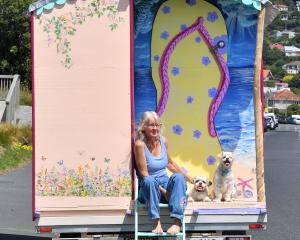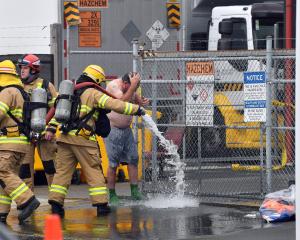
The survey of 654 adult respondents nationwide showed 47% had only occasional contact with neighbours and 8% had no contact at all.
However, Dunedin figures were much higher than the national average, with 22% of respondents reporting they "knew their neighbours well".
The findings were released last week in the "State of Our Neighbourhoods", a study jointly commissioned by Neighbourhood Support New Zealand and food manufacturer Nestle.
Survey information was released in conjunction with a national campaign.
Until September, community groups could apply for funds from a $100,000 "TogetherNES" pool for community projects.
Otago Neighbourhood Support regional co-ordinator Sarah Hexamer, who was appointed earlier this month, said the service superseded Neighbourhood Watch.
Apart from working to establish community-based networks and supporting victims of crime, the organisation's charter would be expanded to encourage residents' groups to form civil defence strategies.
At present, 79 groups meet in the Dunedin area.
The largest group comprised 65 houses, while the smallest group consisted of residents from five houses.
If residents became complacent and did not reinforce the values which engendered "community spirit" through interaction, Dunedin's relatively safe environment would be compromised, she said.
"We have some very passionate, long-standing groups but we need to continue promoting the need for people to look out for each other.
"They could meet for half an hour each month and watch out for each other.
These little things might help deter criminals without putting people at risk, or provide other forms of great support," she said.
The research also indicated 72% of people wanted to know neighbours better, but time pressures and an overall reduction in "community friendliness and trust" made interaction less likely.
Those polled said they would like to see funding used for community projects ranging from clean-up and maintenance programmes for litter, graffiti and parks through to setting up support offices and helping develop sports activities and social facilities for families and youth.
Neighbourhood Support New Zealand was established in 1999.












